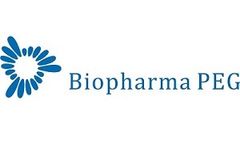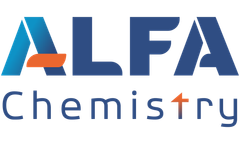Monoclonal Anti Pd 1 Antibody Articles & Analysis: This-Year
12 articles found
Chemokines and their receptors form one of the most intricate signaling networks in immunology. Among them, CCR1 (C-C chemokine receptor type 1) has attracted attention for its dual role as both a guardian of host defense and a potential driver of chronic inflammation and cancer progression. For researchers, CCR1 is more than a seven-transmembrane G protein–coupled receptor (GPCR)—it ...
In modern biopharmaceutical manufacturing, downstream processing development has become one of the most critical and resource-intensive stages. While upstream cell culture or fermentation focuses on producing the target biomolecule, downstream steps transform crude harvests into highly purified and stable therapeutic products. For biologics such as monoclonal antibodies, recombinant proteins, and ...
ELANE, or neutrophil elastase (NE), is a serine protease stored in the azurophilic granules of neutrophils and is encoded by the ELANE gene on chromosome 19. It plays a pivotal role in the host defense system by degrading bacterial proteins, remodeling extracellular matrices, and shaping inflammatory responses. However, the same proteolytic activity that protects against pathogens can, when ...
Recombinant protein expression is a cornerstone of modern biopharmaceutical development, providing the means to produce proteins with therapeutic potential, enzymes, and antibodies. Among various expression systems, Chinese Hamster Ovary (CHO) cells have emerged as the preferred choice for many researchers and pharmaceutical companies. This article delves into the significance of recombinant ...
In the ever-evolving field of biopharmaceuticals, the production of antibodies has taken center stage due to their critical role in therapeutic applications. Among the various production systems available, Chinese Hamster Ovary (CHO) cells have emerged as a gold standard for monoclonal antibody production, and specialized services have been developed to streamline this process. The Significance ...
Antibody-drug conjugates (ADCs) combine potent small-molecule drugs with monoclonal antibodies for targeted cancer therapy. A major challenge is loading enough drug onto each antibody without compromising solubility or circulation time. Introducing polyethylene glycol (PEG) linkers between the antibody and drug payload can address this. PEG is hydrophilic, biologically inert, and FDA‐recognized ...
Active Pharmaceutical Ingredients (APIs) form the foundation of modern pharmaceuticals, serving as the biologically active components responsible for the therapeutic effects of medications. These crucial compounds undergo rigorous research, development, and manufacturing processes before being integrated into final pharmaceutical formulations. The pharmaceutical landscape encompasses a diverse ...
In recent years, the field of antibody drug design has become increasingly significant in the realm of therapeutic development, driven by the need for more effective and targeted treatments for various diseases, including cancer, autoimmune disorders, and infectious diseases. Antibodies, which are proteins produced by the immune system, have the ability to specifically recognize and bind to ...
Alfa Cytology has officially released its antibody-drug conjugates(ADCs) development services which demonstrates the dedication to fighting cancer through advanced treatment methods. Alfa Cytology, which stands at the forefront of oncology service provision in New York United States, has announced its sophisticated antibody-drug conjugates(ADCs) development services for cancer. The pioneering ...
In recent years, the fight against cancer has seen significant advances, particularly with the emergence of targeted therapy. Among the most promising strategies in this domain is the development of radioactive drug conjugates(RDCs). These innovative therapeutic agents combine the targeting capabilities of antibodies with the cytotoxic effects of radioactive isotopes, providing a powerful ...
Antibody-Drug Conjugates (ADCs) represent a groundbreaking advancement in targeted cancer therapy, combining the specificity of antibodies with the potency of cytotoxic drugs. The development and production of ADCs are complex processes that require a deep understanding of both biology and chemistry, alongside cutting-edge technology. This article delves into the intricacies of ADC development ...
Immuno-oncology is an innovative field that utilizes the body’s immune system to combat cancer. By harnessing the natural capabilities of the immune system, immuno-oncology services are revolutionizing the way we approach cancer treatment, offering novel therapies that are changing the prognosis for many patients. Understanding Immuno-Oncology Immuno-oncology focuses on the interaction ...






